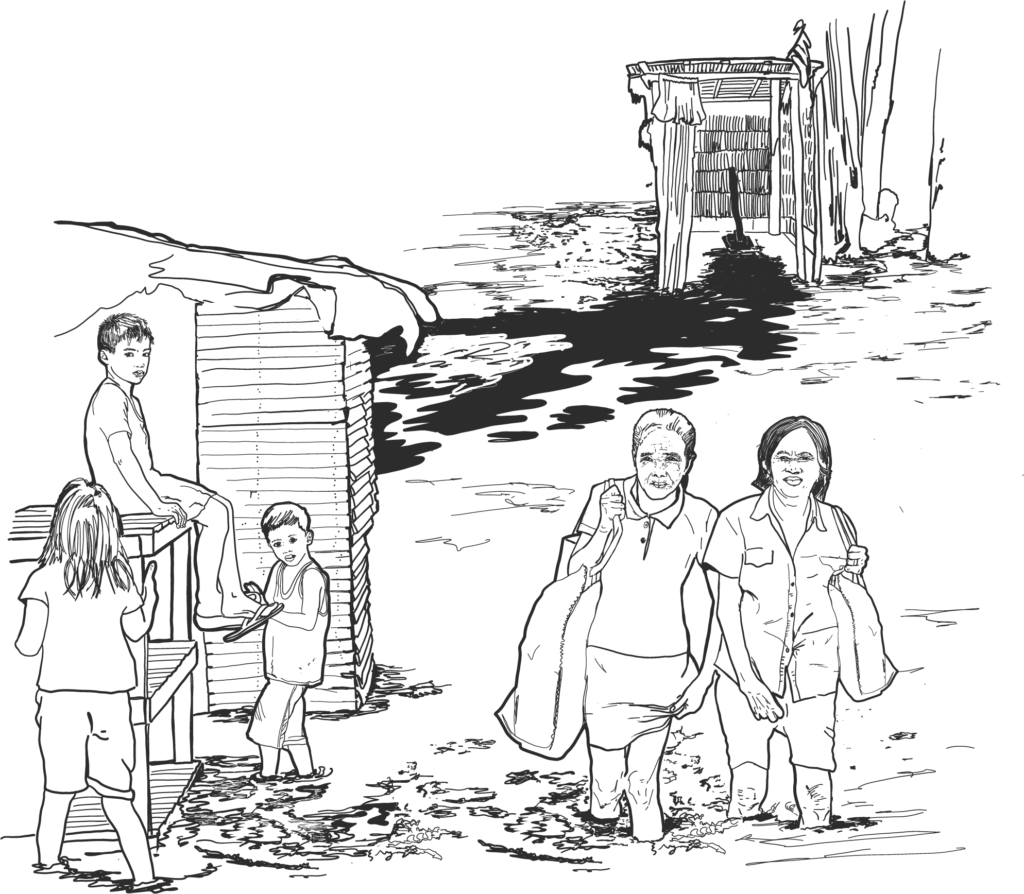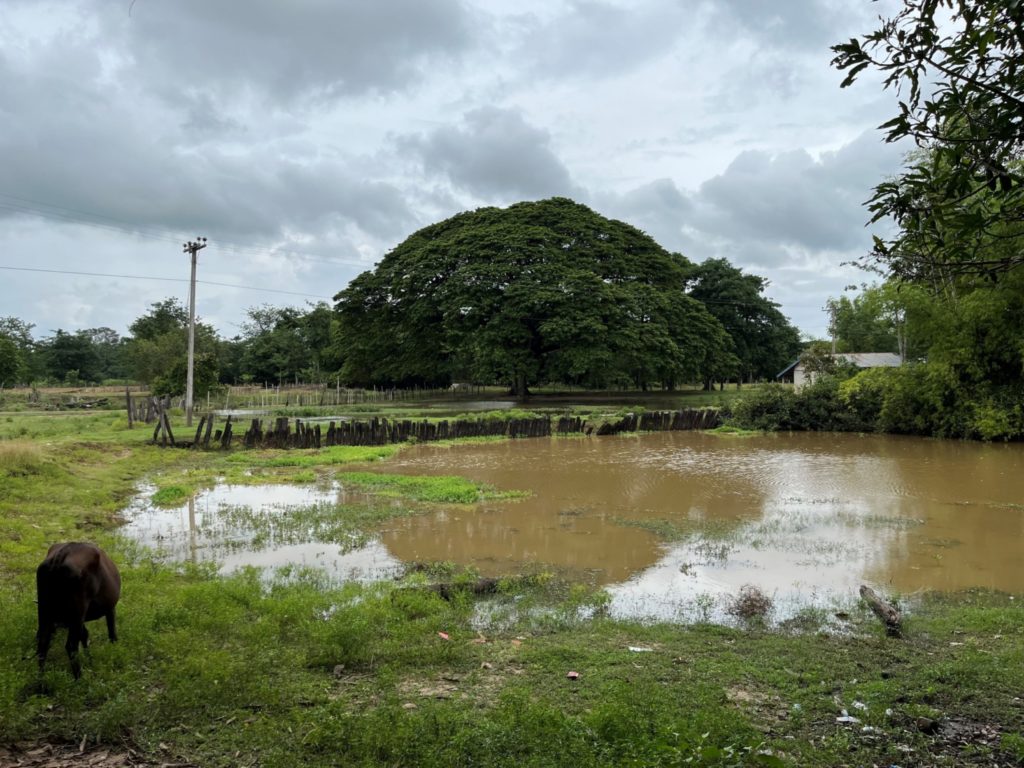Climate change is a major concern for the rural sanitation sector. In a context where more than two billion people still do not have access to basic sanitation facilities, climate change adds complexity that deepens existing inequalities and vulnerabilities in terms of sanitation access and usage. Notably, the effects of climate change have a disproportionate impact on disadvantaged and marginalised groups.
Over the past few years, evidence bases have been built around climate change and water, and climate change and urban sanitation, but little attention has been paid to rural sanitation.
Therefore, our work on climate change, in partnership with the Institute for Sustainable Futures, has two overarching objectives:
- To build evidence of climate impacts on rural sanitation, with a focus on how different people experiences these impacts respond.
- To test and document how climate related thinking can be integrated in rural sanitation programming.
We began with a desk-based study and interviews with practitioners, which came together into seven principles, published in our Frontiers of Sanitation edition. Working with partners, we have used participatory research methods in Bangladesh, Burkina Faso and Lao PDR to document climate impacts on sanitation, and trialled integrating climate thinking in sanitation interventions. A synthesis of our findings and reflections are now in this learning brief.
Our emerging findings include:
- There are direct and indirect climate impacts on sanitation, and it is challenging existing coverage, progress and ODF statuses.
- In Bangladesh and Burkina Faso some direct impacts include droughts and floods causing problems with infrastructure damage, access to markets, a lack of handwashing during droughts, reduced hygiene to maintain toilets. Indirect impacts include cattle dying, crop failure, livelihoods are affected which means sanitation isn’t a priority for investment and maintenance.
- It is possible to make sanitation interventions climate responsive through thoughtful and context sensitive modifications, such as in Loas.
- Barriers to safe sanitation for all are also barriers to climate resilience – Existing barriers such as poverty and social marginalisation are also barriers to climate resilience. Gender, equity and other kinds of transformative programming recognised in the sanitation sector as good practice can also go a long way towards boosting climate resilience as it builds the capacities and capabilities for people to cope and respond.
YouTube playlist: Ruhil Iyer (SLH) and Jeremy Kohlitz (ISF) introduce the key themes from this work
Partners
- Institute for Sustainable Futures, University of Technology, Sydney
- WaterAid Bangladesh
- SNV Lao PDR
- UNICEF West and Central Africa Regional Office
- Institut de Recherche en Sciences de la Santé, Burkina Faso
- Rupantar








